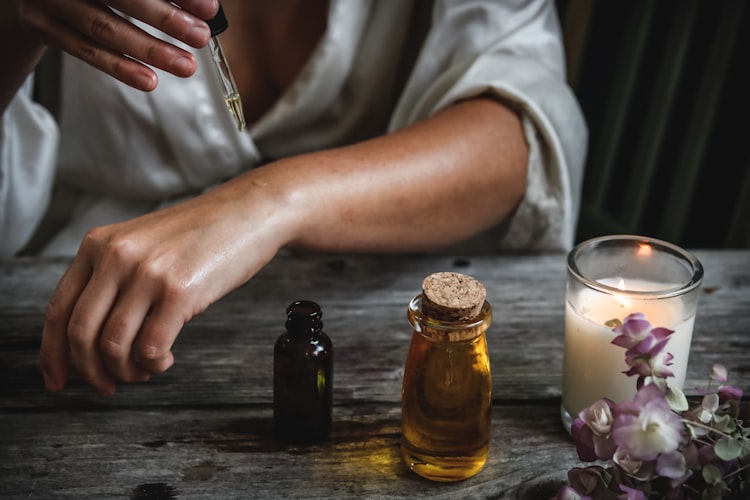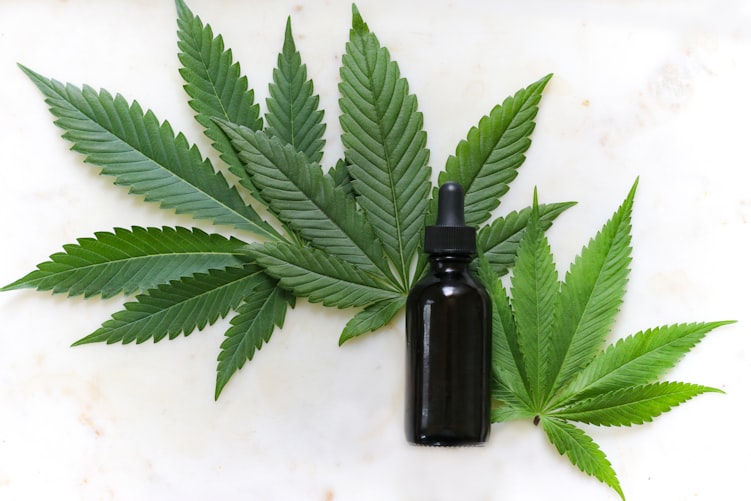How Does Full Spectrum Hemp Oil Differ From CBD Oil
 0
0
Posted: Tue September 08 5:11 AM PDT
Member: Evans Henry
Updated: Fri January 28 2:51 AM PST
Tags: cbd hemp cbd oil
With all the buzz flying around about CBD and Hemp oil’s benefits, you may be wondering what they are, and what are their differences? Since the inclusion of hemp in the 2018 Farm Bill, which led to the legalization of CBD products with less than 0.3 % THC, CBD and hemp products are now widely available. However, with the sudden widespread availability, there is still some obscurity surrounding the definition between legal cannabis products such as CBD and Hemp. There is even further confusion between the differences between CBD and hemp. Here's a guide to cannabis that would clear the clouds of doubts regarding this subject in your head.
While many marketing tools interchange the words CBD and Hemp, there are critical differences that consumers should know. So, when buying a product, make sure the ingredients are correct to get what you intended. Whenever a new trendy wellness keyword emerges, the industry plasters it everywhere to the point it can be overwhelming. However, learning the differences between hemp oil and CBD products are key to making a more informed purchase and being a more educated consumer.
What is CBD Oil?
There are many variations of the Cannabis Sativa plant. Each variety contains different THC amounts, the psychoactive ingredient that gets you high and CBD, the non-psychoactive therapeutic component. Cannabis sativa plants that have more than 0.3% THC are known as marijuana. Hemp is a variety of Cannabis Sativa with less than 0.3% THC and cannot get you high or experience euphoria. With THC dosage calculator you can easily find out what is the right amount for you.
People are not limited to only oil to get their dose of CBD today. Gummies too happen to be a very popular choice among the consumers. In fact, CBD gummies are #1 among the people when it comes to choosing a CBD product.
CBD (cannabidiol) is one of many cannabinoids within the cannabis plant. The manufacturers extract CBD from the hemp plant’s buds and flowers and press into oils. While hemp oil contains traces of THC and concentrations of CBD, full-spectrum CBD oil is the purest CBD and the most effective to get the cannabis plant’s benefits without getting high. So, if you need something more potent, then full-spectrum CBD oil will be an ideal option for you.
Full-spectrum CBD oil products contain high amounts of CBD and are low in other cannabinoids, such as THC. Although other cannabinoids and THC’s trace amounts are low, they still work together to create the entourage effect. The entourage effect, also known as whole plant medicine in holistic or ancient medicine, occurs when many components of the cannabis plant interact with the body and produce more potent effects of each ingredient. Each cannabinoid interacts with the endocannabinoid system, balances the functions between the human body systems and control, digestive, immune, and brain health.
What is Full Spectrum Hemp Oil?
Full-spectrum Hemp oil extracted from the seeds or stalk of the hemp plant is a whole plant extract, which means it contains different flavonoids, terpenes, and cannabinoids that work together to create the entourage effect. Hemp oil contains high CBD concentration, so you will still reap the entourage effect’s benefits without feeling any psychoactive effects.
Full-spectrum Hemp oil contains THC, CBD, and other cannabinoids from the Cannabis Sativa plant. Broad-spectrum defines hemp oil without any traces of THC. Hemp seed oil is extracted only from the seeds and contains no CBD, but it is known for its fatty acid profile that promotes healthy hair, skin, and nails. It is also used in capsules as it contains a wide range of vitamins and minerals.
What are the benefits of Hemp Oil vs. CBD Oil?
Groundbreaking research shows that CBD can play an integral part in brain health and help protect from brain diseases such as dementia, prevent damage, and generate new cells. Scientists continue to research CBD uses in chronic conditions such as arthritis, epilepsy, and multiple sclerosis. Recent research also shows that CBD may be useful in treating high blood pressure and reducing strokes due to its ability to reduce stress. It can especially come in handy for the elderly, who may be affected by conditions like anxiety. Because of this reason, the popularity of CBD oil in the elderly is on the rise today.
CBD can also manage pain and aids with appetite, sleep, and maintaining the immune system. CBD may also reduce chronic pain and inflammation and be a more holistic alternative to addictive prescription pain medications such as opiates. You can use CBD based products such as CBD oil to treat anxiety and even PTSD safely. CBD regulates moods and can improve sleep as well. Research continues to emerge on the medicinal properties of CBD and how it can help treat many diseases.
You can also use Full-spectrum hemp oil as a natural pain reliever and to ease muscle tension. If cost is an issue, then hemp oil is typically less expensive to produce and to buy. Since hemp oil is rich in fatty acids and proteins, it can boost healthy skin and prevent acne breakouts. Hemp oil can also strengthen the skin and can help reduce inflammation caused by eczema or dermatitis. Beauty products recently featured hemp seed oil as an active ingredient.

Conclusion
It is essential to know and understand the differences between hemp oil and CBD oil. Since CBD products are more expensive, some companies may market that their products contain CBD, but in actuality, it does not. Therefore, reading labels carefully and researching beforehand will help you make an educated decision on what product is best. When it comes to medicinal purposes, CBD is the better choice since there is more scientific research to support the benefits. However, hemp oil is an ideal option for daily use in your beauty routine or minor aches.
Comments
Please login above to comment.


